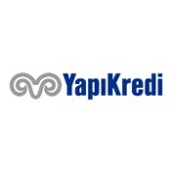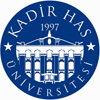| From the Desk of the Editor |
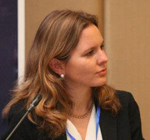 |
This issue of Turkish Policy Quarterly (TPQ) focuses on the rapid and fundamental change in the strategic map of the Middle East. In addition to examining the rise of people power and geopolitical shifts in the region, we look at energy security dynamics, Turkey's foreign policy priorities and its ever-evolving relations within the Euro-Atlantic alliance. The arc of NATO's role in the region, topical developments of the "Arab uprisings," and questioning whether the "rest" can be empowered without threatening the West form this volume's content. . .
|
| Read More. . . |
|
| Interview with Anders Fogh Rasmussen |
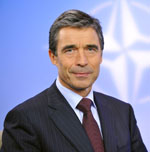 |
In this exclusive interview with TPQ, the Honorable Secretary General provides an overview of the major developments of the past two years in Turkey's neighborhood, including the Libya operation and the crisis in Syria, and assesses NATO's stance thereof. He points out that unlike in the Libya case, there has not been a united response from the international community or a UNSC mandate in the case of Syria. Emphasizing NATO's open door policy, he commends Georgia for its commitment to a vision of NATO membership, and underlines the democratic success marked by the recent elections in this country. The Secretary General also notes NATO's decision to enhance cooperation with partners, and include partners that contribute to NATO operations into relevant decision-shaping processes. . . |
| Read More. . . |
|
| Interview with Taner Yıldız |
| The energy sector is becoming a significant factor in the expansion of the Turkish economy, and the growing domestic and foreign investors' interest in this sector reflects Turkey's political and economic stability. Turkey is rising to the status of a regional leader in energy by the realization of the Baku-Tbilisi-Ceyhan and Baku-Tbilisi-Erzurum pipelines, especially the TANAP project, which will take on the main role in Turkey's mission of becoming a "bridge" for transporting the rich energy resources of the East to the West. . . |
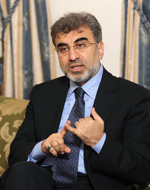 |
| Read More. . . |
|
France and Turkey: New Horizons for a Long-Standing Relationship
Laurent Fabius
|
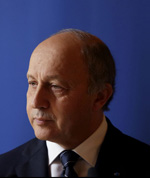 |
The President of the French Republic has marked France's will to establish a "stable and trusting relationship" with Turkey. This relationship should reflect the centuries-old friendship between our countries, our dense economic ties and our concurring analyses of many current issues, especially the Syrian crisis. In preparation for a visit by the President of the French Republic, I would like to encourage us here and now to drive forward our bilateral relations. . . |
| Read More. . . |
|
Transforming the U.S.-Turkey Alliance
John McCain
|
| Today, significant changes within Turkey and tectonic shifts in the geopolitics of the surrounding region are casting the U.S.-Turkish alliance in a new light. Senator John McCain outlines these changes, explains that the strategic interests of the two countries are highly complementary at this time of turbulence in the Middle East, and presents a vision for the two countries to invest in each other's success. The Senator also notes the importance of Turkey setting the highest standards of democratic development for people in North Africa, the Middle East, and Central Asia who look to Turkey for lessons on how to guide their own struggles for justice. . . |
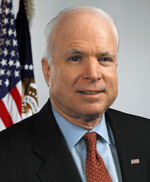 |
| Read More. . . |
|
Comprehensive Security in Turkey
Aykan Erdemir
|
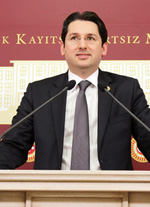 |
Kemal Kılıçdaroğlu's ascent to the leadership of the Republican People's Party (CHP) in May 2010 represents the rise of a social democratic challenge to the current securitized policy discourse and practice in Turkey. CHP's recent attempts to balance state and human security have the potential to institutionalize a comprehensive security approach that is in line with worldwide developments. CHP's comprehensive security framework, based on an unequivocal commitment to fundamental rights and freedoms as well as progressive social policies, has the potential to offer sustainable solutions to Turkey's existential security dilemmas. In turn; this could play a decisive role in shaping not only Turkey's national policy, but also its regional and global orientation. . . |
| Read More. . . |
|
NATO and Energy Security
Michael Rühle & Julijus Grubliauskas
|
| Over the past years, energy security has turned into a major theme of the international security debate. As an Alliance that provides protection for almost 900 million citizens, NATO has a legitimate role to play in energy security. Defining the exact nature of this role proved difficult at first, as there were concerns by some Allies about unduly "militarizing" an essentially economic issue. But energy security is becoming firmly embedded in NATO's agenda. The Alliance's new Strategic Concept broke new ground with respect to non-traditional security challenges, including energy security. The Lisbon Summit Declaration also reinforced the Strategic Concept's message by tasking NATO to integrate energy security considerations into NATO's policies. Today, the question of "if" has been replaced by the question of "how" – energy security is now a permanent fixture of NATO's agenda. . . |
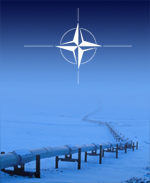 |
| Read More. . . |
|
European Defense in the Age of Austerity
Iulian Chifu
|
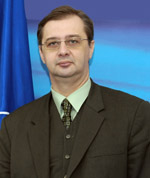 |
During the Chicago NATO Summit 2012 which was held between the 20th and the 21st of May, one of the main issues discussed was how to meet the level of defense capabilities needed in the age of austerity. Solutions proposed regarding the balance of the costs of the defense of Europe are referred to in NATO as "smart defense", while the discussion within the EU is of "pooling" and "sharing". The discussion is related to the level of ambition the EU has to shape global governance, the role it wants to play in the global politics and its level of contribution to the defense of its own territory, as well as its contribution to international missions and the responsibility it assumes regarding turbulence in the world. . . |
| Read More. . . |
|
The Zero Problem Doctrine: What Went Wrong?
Mustafa Kibaroğlu
|
| With the "Arab Spring", long-standing institutional structures have turned upside down both within the region and in Turkey's relations with the regional states. Turkey's "zero problem" doctrine has been called into question ever since the demonstrations in Syria have turned into violent clashes between the supporters of Assad's regime and the protestors, leading Turkey to take on a tough stance against the Syrian regime, and marring Turkey's relations with Iran and Iraq. In addition to the domestic factors that affected the pace of events in Syria, it is equally crucial to consider a number of external factors. The position of Iran and Russia on the one side, and Israel and the United States on the other, have had a decisive impact on the course of events in Syria, significantly constraining Turkey from pursuing its own interests in the region. . . |
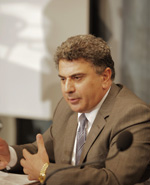 |
| Read More. . . |
|
Sino-U.S. Rivalry in Southeast Asia
Raja Muhammad Khan
|
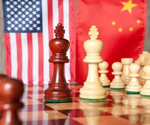 |
The rise of China as a regional and global power has been unprecedented in world history. It has elevated itself from an utterly impoverished agrarian society to one of the most powerful economies, advancing the world towards a multipolar system. On one hand, the United States continues to see China as an opportunity for economic cooperation to resuscitate its hard-hit economy; on the other hand, it pursues an "anti-China Containment" policy to counter any efforts on part of China to challenge its supremacy in world affairs. Whether China can gradually erode the foundations of U.S. influence in Southeast Asia without the actual display of force will test the pragmatism of the Chinese mind-set. This article
aims to analyze the Sino-U.S. rivalry for the domination in Southeast Asia and its implications. . . |
| Read More. . . |
|
Assessing the Impact of Track Two Initiatives on the Nagorno-Karabakh Peace Process
Gulshan Pashayeva
|
| Despite the twenty-year-long OSCE Minsk Group's mediation efforts concerning the Armenian-Azerbaijani conflict over Nagorno-Karabakh, so far no tangible results have been achieved in the official negotiation process. Meanwhile, various local and international actors have also undertaken a number of nonofficial (Track Two) initiatives with regard to this conflict. This article explores these Track Two diplomacy initiatives and assesses their impact on the overall peace process. The analysis suggests that there may not be any progress towards a peaceful, negotiated solution unless the Armenian and Azerbaijani societies, divided by Nagorno-Karabakh conflict, have a clear vision of a common future. As a driving force, this vision will assist in building trust and bring the parties to more compatible positions through interaction in both official and non-official arenas. . . |
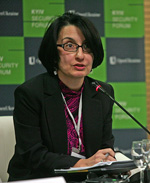 |
| Read More. . . |
|
A "Kurdish Reset": Erdoğan's Last Chance?
Gabriel Mitchell
|
 |
The recent resurgence of PKK violence, coupled by a noticeable lag in the constitutional reform process, has led critics to assume that Prime Minister Recep Tayyip Erdoğan's promises to the Kurds, Turkey's largest minority population, were insincere. Since June 2011, over 800 people have died in renewed clashes in southeastern Turkey, and the unresolved "Kurdish Problem" threatens the premier's credibility. This paper explores the primary causes behind Erdoğan's failures, and suggests practical measures that could restore his credibility while ensuring a democratic future to the Republic of Turkey. . .
|
| Read More. . . |
|
Turkey’s Syria Problem: A Talking Timeline of Events
Zenonas Tziarras
|
| This article analyzes the stages of the Syrian crisis' escalation and the various Turkish reactions. Each stage of Turkey's management of the crisis reveals certain features of its foreign policy. By examining its reactions throughout crisis we can observe the gap between the capabilities and aspirations of Turkish foreign policy. The result is a "talking timeline of events" which shows that the Syrian crisis has been a "reality check" for Turkey. . . |
 |
| Read More. . . |
|
Turkey’s Foreign Policy in the AKP Era: Has There Been a Shift in the Axis?
Laura Batalla Adam
|
 |
Considered to be merely reactionary at the beginning of the past century, Turkish foreign policy has undergone an important transformation in the past decade, making Turkey an influential actor in regional as well as world politics. As a result of this transformation initiated by the AKP government, observers have noticed a shift in Turkey's foreign policy from the West to the East. However, as this article will try to demonstrate, neither is the West an alternative to the East, nor is the East an alternative to the West. . . |
| Read More. . . |
|
An Alliance between Greece, Turkey, and Israel?
Marios P. Efthymiopoulos
|
| This article attempts to present an overview of the relations between three key players in the Mediterranean, offering proposals for ending regional disputes and creating a legitimate partnership which will be referred to as the "Triad Strategic Alliance" between Greece, Turkey, and Israel. This triad has strong incentives to come together, since the three countries face many shared emerging threats and challenges. . . |
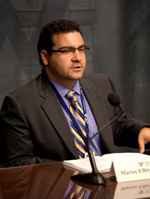 |
| Read More. . . |
|
Explaining the Stability of Azerbaijan
Andrea Filetti
|
 |
Despite recent upheavals in the Middle East and the celebration of what has been called the "fourth wave of democracy," some countries still couple authoritarian rule with a high degree of stability. In the South Caucasus region, Azerbaijan represents a paradigmatic case. This article identifies and discusses two main reasons that contribute to the surprising stability of Aliyev's regime: the persistence of strong informal institutions –next to weak democratic ones–, and a widespread political culture that can hardly be considered as conducive to a democratic turn. . . |
| Read More. . . |
|
| TPQ Roundtable: The New Game of Energy
|
| On 31 October 2012, Turkish Policy Quarterly (TPQ), in conjunction with the Friedrich Naumann Foundation (FNF), hosted a roundtable discussion on the evolving dynamics of energy politics in Turkey's neighborhood, which took place in Istanbul. The discussion aimed at enlightening how Ankara is playing its geostrategic hand in relation to the energy power play, how the European Union's common energy policy is evolving, and how the prospective pipelines might affect regional politics. This article reviews the main arguments and points made by the panelists, as well as further issues raised by the audience. . . |
 |
| Read More. . . |
|
|
|
|



















